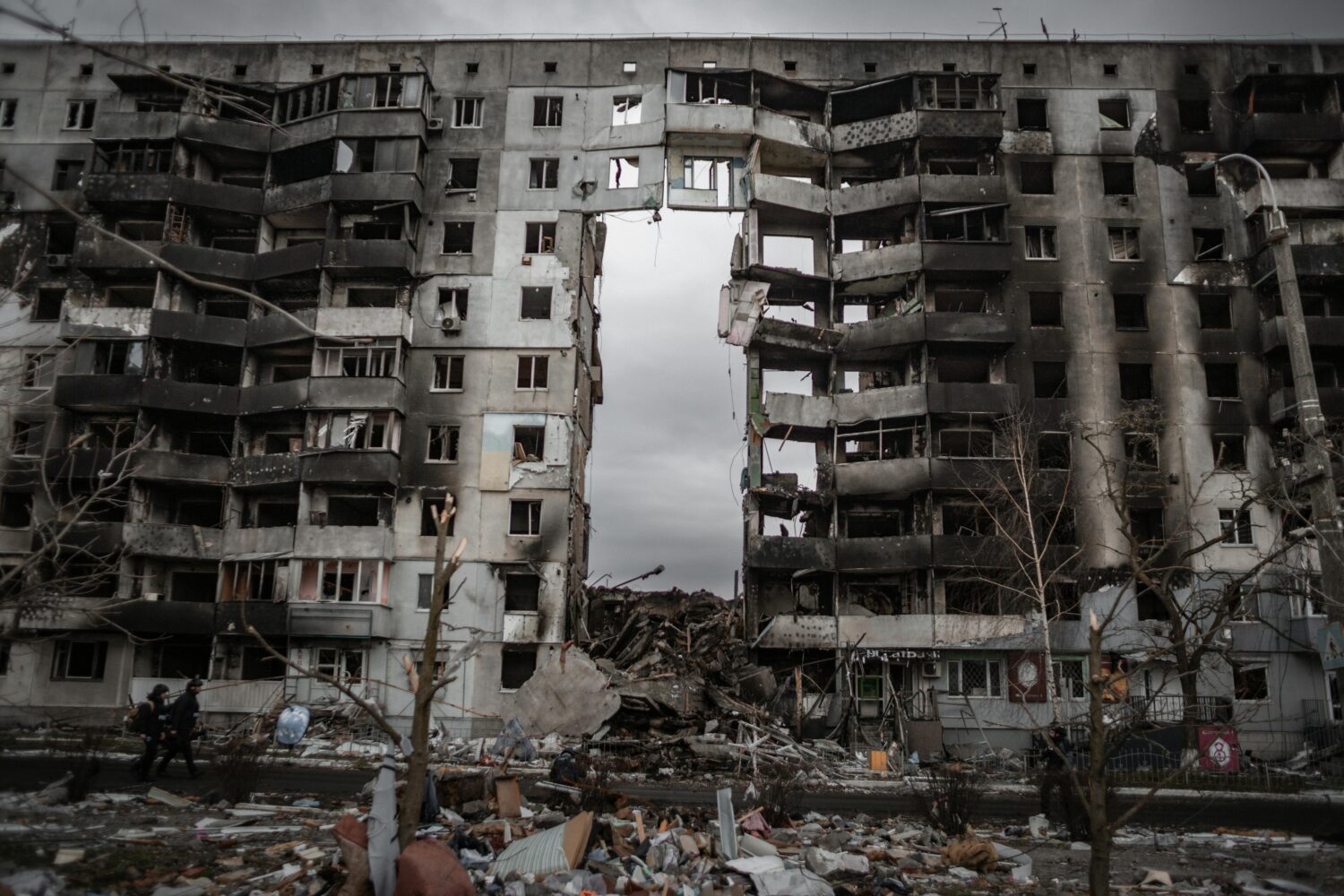
No Safe Haven: Strengthening Universal Jurisdiction in the UK
By Lauren Schaefer, Legal Fellow
If a senior military commander implicated in atrocities in Ukraine, or an official involved in repression in Iran, were to visit the UK today, they could not be prosecuted for crimes against humanity. The exercise of universal jurisdiction is a vital mechanism for addressing impunity and ensuring accountability for the most serious international crimes. Strengthening the UK’s ability to apply this principle has been a central focus of REDRESS’s advocacy. The summary below outlines our efforts in this area and the impact of our work to date.
What is Universal Jurisdiction?
Universal jurisdiction is a legal principle that allows states to prosecute the world’s most serious crimes – including genocide, war crimes, crimes against humanity, and torture – regardless of where they occurred or the nationality of those involved. Universal jurisdiction reflects a global consensus that some crimes are so serious that they affect the international community as a whole and must not go unpunished. In many cases, universal jurisdiction is the only way survivors and families can access justice, especially when domestic courts are unable or unwilling to act due to conflict, lack of independent judges, political obstruction, or lack of resources. There are more than 2,000 active investigations across Europe and there have been many prosecutions, such as the 2022 al-Khatib trial in Germany, which for the first time convicted a senior Assad government official for crimes against humanity in Syria. UK courts already have some powers to prosecute such crimes, even when committed abroad and the crimes have no direct link to the UK. However, serious legal barriers mean these powers are rarely used.
For an introduction to universal jurisdiction and how the current UK legal framework can be reformed, see REDRESS’s briefing paper.
What is the Problem?
Under the International Criminal Court Act 2001, the UK cannot prosecute crimes against humanity committed abroad unless the suspect is a UK national or resident. This means that perpetrators can escape accountability simply because of their immigration status. Suspects of genocide, war crimes, or crimes against humanity who are not UK nationals or residents are free to visit and transit through the UK, potentially for long periods of time, without any fear of prosecution by UK authorities. This undermines not only justice for victims but also the UK’s international reputation as a champion of human rights and the rule of law.
As a result of the legal gap, suspects of genocide, war crimes, or crimes against humanity who are not UK nationals or residents are free to visit and transit through the UK, potentially for long periods of time, without any fear of prosecution by UK authorities. On top of this, by conferring “special mission immunity” on foreign government representatives sent on official business to the UK, the UK Government has on occasion prevented the arrest and trial in the UK of individuals suspected of international crimes. In 2016, former Rwandan General James Kabarebe — identified as responsible for directing M23 rebel forces implicated in war crimes and mass displacement in the Democratic Republic of Congo — was granted special mission immunity during a visit to London, despite being named in a 2012 UN report and later sanctioned by the U.S. in 2025. More recently, senior Israeli officials including former Chief-in-Staff of the Israel Defence Forces Herzi Halevi and former War Cabinet Minister Benny Gantz received similar immunities during UK visits. Israeli officials continue to travel to the UK even as UN reports in 2024 and 2025 have accused Israeli forces of war crimes and genocide in Gaza.
How REDRESS Has Responded
REDRESS has played a key role in putting universal jurisdiction on the political agenda and building momentum for change. Our legal and advocacy team has been working across media, parliament, and international forums urging the UK Government to amend the ICCA by removing nationality and residence requirements, so that any suspect present in the UK can be prosecuted.
Advocating Within Parliament
In October 2023, REDRESS published the Global Britain, Global Justice report, which set out the legal and practical obstacles to universal jurisdiction in the UK. The report was launched in Parliament and prompted the proposal of a Private Members Bill to implement its recommendations. The report was endorsed by a number of UK legal experts including Lord Macdonald of River Glaven KC, former Director of Public Prosecutions; Lord Anderson of Ipswich KBE KC, a former Independent Reviewer of Terrorism Legislation; British judge Sir Howard Morrison KCMG CBE KC, a former judge at the International Criminal Court; and Lord Falconer of Thoroton PC KC, former Lord Chancellor.
After the 2024 election, we secured a commitment from Baroness Helena Kennedy to introduce a bill in the House of Lords to amend the International Criminal Court Act. While the bill was not chosen at ballot, the debate it sparked was important in maintaining momentum. We also wrote to the new Attorney General, Foreign Secretary, Home Secretary and Justice Secretary, pressing for reform.
REDRESS has made detailed submissions to Parliamentary committees, including a briefing on how amendments of the International Criminal Court Act 2001 could improve the universal jurisdiction framework in the UK. Our recommendations have been cited in various committee reports, notably the Joint Committee on Human Rights in its Accountability for Daesh Crimes Report and Crime and Policing Bill Report, and the Protection Not Permission Report by the International Development Committee.
Raising Awareness
Our advocacy has extended beyond parliament. In October 2023, REDRESS Director Rupert Skilbeck co-authored an article in The Economist with Amal Clooney on why the UK is failing to hold war criminals to account. Rupert also appeared on BBC Focus on Africa to explain the importance of universal jurisdiction in addressing cases linked to the Rwandan genocide.
Strengthening Capacity and Collaboration
Alongside this policy work, REDRESS also plays a role to facilitate collaboration with civil society and engagement with law enforcement. We are civil society participants in the UK War Crimes Network, hosted by the Metropolitan Police and the Crown Prosecution Service, which brings together relevant government departments and civil society to progress efforts at accountability. We facilitate the UK Universal Jurisdiction Working Group, bringing together UK-based NGOs to discuss gaps in the UK’s approach and ways to build stronger cases. Internationally, we are an NGO member of the EU’s Genocide Network, part of the Global Initiative Against Impunity, and co-author with Trial International and others the Universal Jurisdiction Annual Review, highlighting new cases and global trends.
We also provide training and guidance to civil society. In March 2025, we worked with the International Bar Association’s Human Rights Committee to deliver training for over 40 human rights defenders globally, equipping them with practical tools to use universal jurisdiction in their own advocacy.
Looking Ahead
Reforming the International Criminal Court Act is a timely opportunity to bring the UK’s outdated approach to universal jurisdiction in line with other countries leading the way in the prosecution of serious international crimes. REDRESS continues to push for this change, and recent signs of political will offer real momentum. With the right reforms, the UK can reaffirm its commitment to human rights, close the door to impunity, and ensure survivors have a meaningful path to accountability and justice.
Photo: Destroyed residential buildings in Kyiv, Ukraine by Алесь Усцінаў/ Pexels

